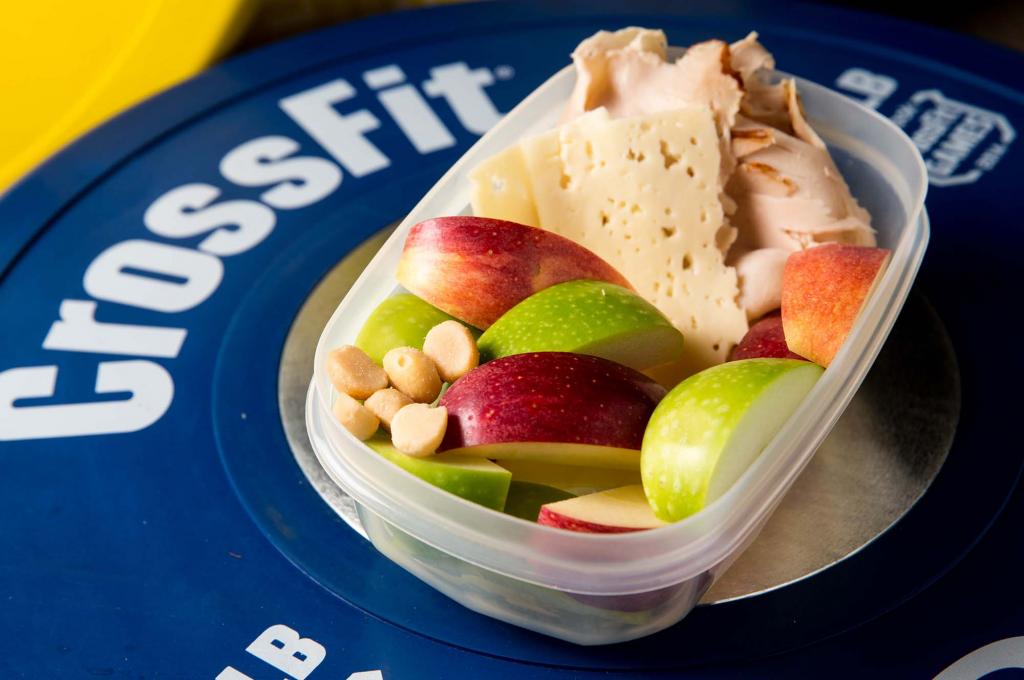Anyone who has tried to calculate his or her caloric expenditure has likely become confused about which calculator or method is “best.” You might find disparate estimates and quickly wonder if you are better described as “moderately” or “very” active.
Here is the punch line: They are all estimates.
To determine the optimal amount of food for health and performance, you are going to have to start weighing and measuring somewhere. And where you start is secondary to starting.
Caloric Estimates
The number of calories you burn in a day is called your total energy expenditure. This includes your:
- Basal metabolic rate (what you burn at rest maintaining basic aspects of physiology such as heart rate, body temperature, etc.).
- Non-exercise and exercise-associated thermogenesis (what you burn moving around, from housework to CrossFit).
- Thermic effect of feeding (what you burn eating food).
Many online calculators use one of a few commonly accepted equations for the basal metabolic rate; they rely on a combination of variables such as height, age and mass. Genetic factors, however, result in individual variation that cannot be predicted by these inputs, so their calculations produce best estimates only.
Non-exercise and exercise-associated expenditure might be calculated by multipliers (e.g., 1.5 for “moderately active”) or by summing the calories expended in all the different activities of a typical day. The thermic effect of feeding is often assumed to be approximately 10 percent of total calories.
Some have even simplified this process further by using your current body weight and applying a single multiplier per pound to determine total caloric intake.
The “Best” Estimate
Perhaps the “best” way ignores these estimates entirely. Presumably, you are aware whether you are leaning out, maintaining weight or gaining weight on your current diet. Let this be your guide toward the ideal number of calories for you.
Track what you eat for at least three days, ensuring these three days are an accurate representative of your typical diet. The only goal during this period is honestly recording what you eat on a routine basis. If the calorie totals are consistent day to day, you have a baseline number. If the numbers vary widely (e.g., more than 500 calories), continue to track for up to a week to determine the total that is most representative of your “typical day.”
Assuming you are consistent with your weight, this baseline is the best caloric estimate for maintaining your current weight. This process is better than using calculators because it represents your genetic factors, as well as your specific activity level—with CrossFit (be it single sessions or multiple sessions), any extra recreational pursuits, laborious or sedentary jobs, etc. No need to bother with compounding estimates when you can just use a system that includes your own actual experience.
However, it is possible that this intake is not ideal. If you are gaining or losing weight you do not want to gain or lose, this intake is too much or too little. It is also possible that you might be maintaining weight at an intake level that is too low, particularly if you have been under-eating for some time. This is where online calculators can be helpful. Look at your current intake compared to that recommended by a couple of online calculations. If online calculators suggest you eat 2,300-2,800 calories per day and you are at 1,500 calories, you are under-eating.
What About Macronutrients?
One reason CrossFit likes the Zone Diet is that the breakdown of calories is a good starting point for CrossFit athletes (40 percent of calories from carbohydrate, 30 percent from fat and 30 percent from protein—40 C/30 F/30 P). At the right number of calories, this system contains enough protein to support lean mass, enough carbohydrate to support high-intensity activity, and enough fat to aid in both activity and recovery.
A 40 C/30 P/30 F split is also a middle ground that requires less drastic changes when fine-tuning your macronutrient splits. You could start at 10 C/20 P/70 F but will likely be sluggish in CrossFit conditioning workouts and perhaps struggle to achieve your desired body composition. Starting with a disparity between macronutrients can increase the time it takes to eventually settle at optimum values.
This 40 C/30 P/30 F recommendation assumes you are a “typical” CrossFit athlete. While competitive CrossFit has grown in popularity, CrossFit as a strength and conditioning program is designed to be a single high-intensity effort per day. A “typical” CrossFit athlete attending five classes a week following CrossFit.com workouts would complete a total of 45-90 minutes of high-intensity work that week. As one’s CrossFit volume increases, the total calories need to increase to support the extra volume.
Making Changes
If your caloric total was inconsistent, it is valuable to ensure your intake is consistent for a few weeks to establish a baseline and determine its effect before making changes. Consistent means within about 50 calories of the target total per day.
If your macronutrient split is significantly different than 40 C/30 P/30 F and you feel sluggish in workouts, look to increase the percentage of calories from carbohydrates. If your protein is low and you would like more muscle mass, increase the protein allotment. If you want to lean out and you have more than 30 percent of the calories from fat, lower that percentage. Any and all changes should be put into practice for a few weeks to assess their effects before making additional changes.
If you are looking to lean out or gain weight, adding or subtracting 10-20 percent of your current caloric total is a good place to start. This helps the body’s metabolism—as well a person’s mental state—adapt to the changes. Getting too aggressive with a caloric deficit can lead to under-eating, and it can potentially drive binge behaviors instead of adherence. Understand that eating below your caloric needs favors aesthetic goals over performance goals, and therefore performance might suffer.
While online calculators are one method to determine caloric needs, they are not necessarily precise. All diets need to be road-tested by the individual to determine their effect based on a host of factors that cannot be predicted by an equation. Starting to track your intake is more important than ensuring your starting point is exactly accurate, and your commitment to the process and experience will guide you to your most optimal intake.
About the Author: E.C. Synkowski is a Flowmaster for CrossFit Inc. Seminar Staff and has worked at more than 200 seminars. She is the Program Manager for the Training Department and is pursuing a master’s degree in human nutrition and functional medicine (anticipated completion in 2017).
All images: Dave Re/CrossFit Journal



